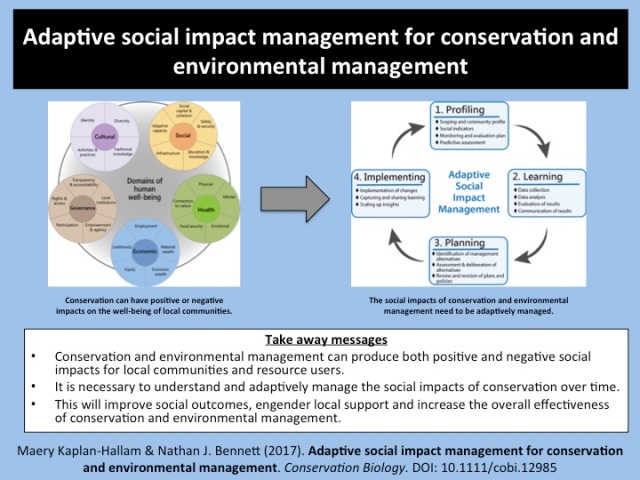
Concerns about the negative consequences of conservation for local people have prompted attention toward how to address the social impacts of different conservation projects, programs, and policies. Inevitably, when actions are taken to protect or manage the environment this will produce a suite of both positive and negative social impacts for local communities and resource users. Thus, a challenge for conservation and environmental decision-makers and managers is maximizing social benefits while minimizing negative burdens across social, economic, cultural, health, and governance spheres of human well-being. The last decade has seen significant advances in both the methods and the metrics for understanding how conservation and environmental management impact human well-being. There has also been increased uptake in socio-economic monitoring programs in conservation organizations and environmental agencies. Yet, little guidance exists on how to integrate the results of social impact monitoring back into conservation management and decision-making. We recommend that conservation organizations…
View original post 370 more words
